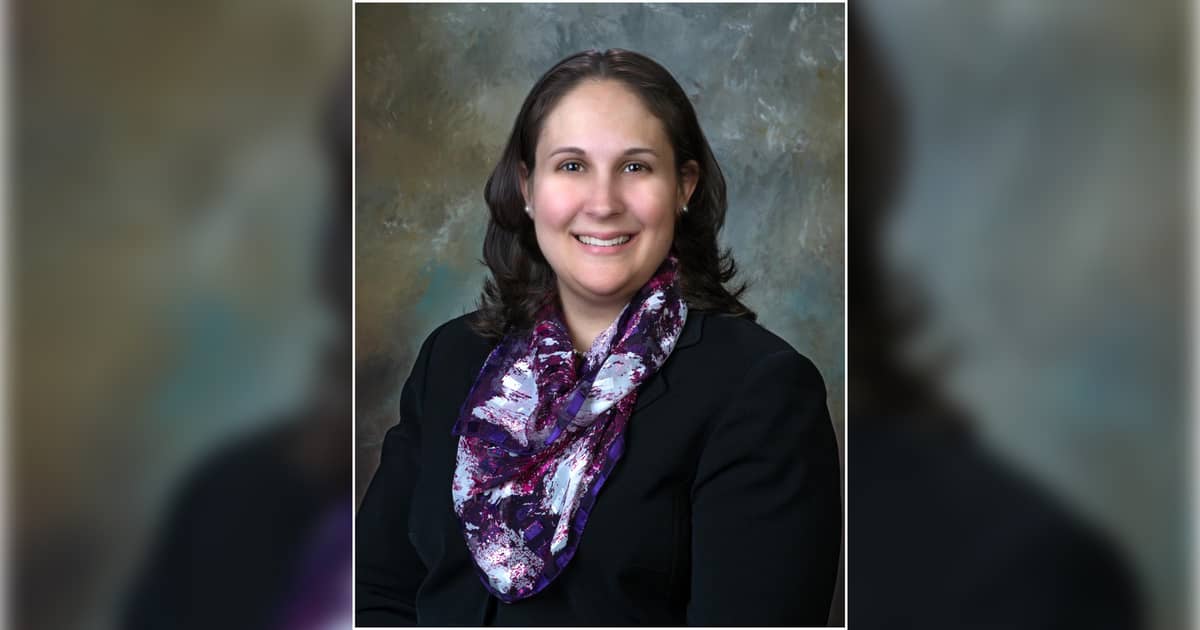When Jen Smith leaves her Jonestown home each weekday on her 40-minute trek to Harrisburg, she is determined each day to make a difference in the lives of Pennsylvanians.
That’s because when she arrives at One Penn Center, the Lebanon County native sits at the helm of the Pennsylvania Department of Drug and Alcohol Programs. Secretary Smith has been the head of the department since March 2018, having served as acting director since January 2017. Smith, a daughter of Keith and Sue Kreamer, Annville, never expected her accounting degree from Shippensburg University would land her in the seat she currently occupies.
“Not in a million years did I see myself here,” she said. “When I went to college, I didn’t even want to be an accountant.” Her initial plans included an economics degree and then law school.
“My life changed and law school seemed less realistic, and an economics degree wasn’t going to help me too much in Lebanon County, so I thought with accounting I can always work for a local accounting firm,” she said.
Then a relative suggested she take the state civil service exam and she landed an entry-level accounting job in the state Office of Budget.
“Eventually, my job grew into more strategic planning and I was appointed Director of Strategic Planning and Communications and then Director of Planning and Management, both in the budget office.”
She transferred to DDAP in late 2015 as deputy director and became acting secretary a little more than a year later. “I had a steep learning curve,” she said, not knowing the ins and outs of a department that was familiar only in numbers. As she was growing into her new job, Smith, 38, was also learning to juggle her schedule with that of her four children, ranging in age from 3 to 16. “One in diapers and one learning to drive,” she joked. “I had to figure out pretty early how to find that balance,” she said.
“Fortunately, I have people that work for me that I very much trust and I’ve got good kids too. The older ones help with the younger ones. I also have family support in the area, so it all works.”
Now, a year and a half into her new routine and her top position, Smith has already begun to make a difference. “In terms of my biggest accomplishment so far, I’d say it’s the state’s 24/7 hotline number for substance abuse help,” she explained. “Before I came along, there was a hotline, but it was Monday through Friday, 8 to 5, manned by a receptionist. People don’t just have problems during the work week. Now it’s a 365 hotline with a certified recovery specialist answering it. Since November 2016, we’ve had more than 50,000 calls.
“I’d say my biggest contribution so far is that I am building relationships to the state offices of Health and Human Services and other agencies.” Since Pennsylvania is at the peak of an opioid crisis, she explained, these services must work together in finding a solution. “I think my judgement has not been clouded by what has happened in the past,” she said, “And I want that relationship building to be a lasting contribution.”
Admittedly, that opioid crisis may well be one of the biggest challenges faced by the department. “One of the reasons we [Pennsylvanians] see so much of this is because of our geographic location,” she explained. “Drugs come in from Detroit and the distribution arcs over to Pittsburgh. From Pittsburgh it spreads to Philadelphia. And Philadelphia is on the corridor from New York City to Miami.”
But Smith cautioned readers should not think the opioid crisis is only a big city crisis. “If we consider the numbers of deaths [from the opioid crisis] as a percentage of the total population, you will see the percentage of deaths in the rural areas,” she emphasized.
“Johnstown, Scranton, Wilkes-Barre, all those areas, people are finding easy access to getting drugs…Rural areas too suffer from the same kinds of challenges as in cities, it’s just not as visible in a small town. Take for instance in Philadelphia, there are 12-13 hospitals within a few blocks and primary care offices on almost every corner. People have easy access to resources and help.
“In rural communities, there’s not as much help or maybe people don’t want to seek out that help, they don’t want their families to be stigmatized. There are a whole lot of factors involved, but the addiction is the same.”
As her office chips away at the drug and alcohol problems in the state and measures to prevent them, Smith is cognizant that the job she holds is not an easy one.
“Stigma still continues to be at the heart of it,” she said. “Citizens need to understand what addiction is. We spend a lot of time educating people about the disease of addiction.” And she sees a need to revamp drug abuse prevention programs to the youth of Pennsylvania in school systems.
“Prevention needs to focus not so much on ‘Here are what the drugs look like,’ but more on the coping skills, the emotional intelligence that kids need to deal with peer pressure, to find trustworthy adults that they can talk with to ask for help.”
Further, Smith said, she would like to see addiction, and mental health issues too, viewed in the same light as any other health issues. “Someday, when I leave this role, I’d like to know I pulled a big part in creating an integrated approach to that.”
Her excitement and passion for the job haven’t waned. “It’s the first job in which I really feel motivated to make a difference,” she said. “What’s next, I don’t know. The governor has three more years, but I don’t know what comes next for me. But I know it will have to feel as if it fulfills a purpose.”
You’re the type of person who reads to the end.
So are we. If you’re proud of this community and want to share it with others, consider joining as a LebTown member. It’s the best decision you can make if you care about local news in Lebanon County. Plus, annual members get a limited-edition LebTown coffee mug! Learn more and join now here.























